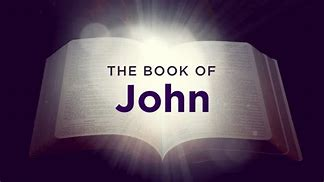You Are of Your Father the Devil - {Interlinear <Greek>}
39 - They → answered {Ἀπεκρίθησαν<apokrinomai>} • {καὶ<kai>} • {εἶπαν<legō>} him, {αὐτῷ·<autos>} “Abraham {Ἁβραάμ<Habraam>} is {ἐστιν.<eimi>} our {ἡμῶν<egō>} father.” {ὁ πατὴρ<ho patēr>} Jesus {ὁ Ἰησοῦς·<ho Iēsous>} said {λέγει<legō>} to → them, {αὐτοῖς<autos>} “If {εἰ<ei>} → were {ἐστε,<eimi>} Abraham’s {τοῦ Ἁβραάμ <ho Habraam>} children, {τέκνα<teknon>} you → would → be → doing {ἐποιεῖτε.<poieō>} the {τὰ<ho>} works {ἔργα<ergon>} Abraham {τοῦ Ἁβραὰμ<ho Habraam>} did, •
40 - but {δὲ<de>} now {νῦν<nyn>} you → seek {ζητεῖτέ<zēteō>} to → kill {ἀποκτεῖναι, <apokteinō>} me, {με<egō>} a → man {ἄνθρωπον<anthrōpos>} who {ὃς<hos>} has → told {λελάληκα<laleō>} you {ὑμῖν<sy>} the {τὴν<ho>} truth {ἀλήθειαν<alētheia>} that {ἣν<hos>} I → heard {ἤκουσα<akouō>} from {παρὰ<para>} God. {τοῦ θεοῦ·<ho theos>} This {τοῦτο<houtos>} is • not {οὐκ<ou>} what • Abraham {Ἁβραὰμ<Habraam>} did. {ἐποίησεν.<poieō>}
41 - You {ὑμεῖς<sy>} are → doing {ποιεῖτε<poieō>} the {τὰ<ho>} works {ἔργα <ergon>} your {ὑμῶν.<sy>} father {τοῦ πατρὸς<ho patēr>} did.” • They → said {εἶπον<legō>} to → him, {αὐτῷ·<autos>} “We {ἡμεῖς<egō>} were → not {οὐ<ou>} born {γεγεννήμεθα·<gennaō>} of {ἐκ<ek>} sexual immorality. {πορνείας<porneia>} We → have {ἔχομεν<echō>} one {ἕνα<heis>} Father — {πατέρα<patēr>} even • God.” {τὸν θεόν.<ho theos>}
42 - Jesus {ὁ Ἰησοῦς·<ho Iēsous>} said {Εἶπεν<legō>} to → them, {αὐτοῖς<autos>} “If {εἰ<ei>} God {ὁ θεὸς<ho theos>} were {ἦν,<eimi>} your {ὑμῶν<sy>} Father, {πατὴρ <patēr>} you → would → love {ἠγαπᾶτε ἂν<agapaō an>} me, {ἐμέ·<egō>} for {γὰρ <gar>} I {ἐγὼ<egō>} came {ἐξῆλθον<exerchomai>} from {ἐκ<ek>} God {τοῦ θεοῦ<ho theos>} and {καὶ<kai>} I am here. {ἥκω.<hēkō>} I → came {ἐλήλυθα,<erchomai>} not {οὐδὲ<oude>} • {γὰρ <gar>} of → my {ἐμαυτοῦ<emautou>} own ← accord, {ἀπ᾽ <apo>} but {ἀλλ᾽<alla>} he {ἐκεῖνός<ekeinos>} sent {ἀπέστειλεν.<apostellō>} me. {με <egō>}
43 - Why {διὰ τί<diatis>} do → you → not {οὐ<ou>} understand {γινώσκετε; <ginōskō>} what {τὴν<ho>} I {τὴν ἐμὴν<ho emos>} say? {λαλιὰν<lalia>} It • is • because {ὅτι<hoti>} you → cannot {οὐ δύνασθε<ou dynamai>} bear • to → hear {ἀκούειν<akouō>} my {τὸν ἐμόν.<ho emos>} word. {τὸν λόγον<ho logos>}
44 - You {ὑμεῖς<sy>} are {ἐστὲ<eimi>} of {ἐκ<ek>} your • father {τοῦ πατρὸς<ho patēr>} the {τοῦ<ho>} devil, {διαβόλου<diabolos>} and {καὶ<kai>} your → will {θέλετε<thelō>} is ← to → do {ποιεῖν.<poieō>} your {ὑμῶν<sy>} father’s {τοῦ πατρὸς<ho patēr>} desires. {τὰς ἐπιθυμίας<ho epithymia>} He {ἐκεῖνος<ekeinos>} was {ἦν<eimi>} a → murderer {ἀνθρωποκτόνος<anthrōpoktonos>} from {ἀπ᾽<apo>} the → beginning, {ἀρχῆς<archē>} and {καὶ<kai>} does → not {οὐκ<ou>} stand {ἔστηκεν,<histēmi>} in {ἐν<en>} the {τῇ<ho>} truth, {ἀληθείᾳ<alētheia>} because {ὅτι<hoti>} there → is {ἔστιν<eimi>} no {οὐκ<ou>} truth {ἀλήθεια<alētheia>} in {ἐν<en>} him. {αὐτῷ.<autos>} When {ὅταν<hotan>} he → lies, {λαλῇ τὸ ψεῦδος,<laleō ho pseudos>} he → speaks {λαλεῖ,<laleō>} out of {ἐκ<ek>} his → own {τῶν ἰδίων <ho idios>} character, ← for {ὅτι<hoti>} he → is {ἐστὶν<eimi>} a → liar {ψεύστης <pseustēs>} and {καὶ<kai>} the {ὁ<ho>} father {πατὴρ<patēr>} • {αὐτοῦ.<autos>} of • lies. •
45 - But {δὲ<de>} because {ὅτι<hoti>} I {ἐγὼ<egō>} tell {λέγω,<legō>} the {τὴν <ho>} truth, {ἀλήθειαν<alētheia>} you → do → not {οὐ<ou>} believe {πιστεύετέ <pisteuō>} me. {μοι. <egō>}
46 - Which one {τίς<tis>} of {ἐξ<ek>} you {ὑμῶν<sy>} convicts {ἐλέγχει<elenchō>} me {με<egō>} of {περὶ<peri>} sin? {ἁμαρτίας;<hamartia>} If {εἰ<ei>} I → tell {λέγω, <legō>} the → truth, {ἀλήθειαν<alētheia>} why {διὰ τί<dia tis>} do → you {ὑμεῖς<sy>} not {οὐ<ou>} believe {πιστεύετέ<pisteuō>} me? {μοι;<egō>}
47 - Whoever {ὁ<ho>} is {ὢν<eimi>} of {ἐκ<ek>} God {τοῦ θεοῦ<ho theos>} hears {ἀκούει·<akouō>} the {τὰ<ho>} words {ῥήματα<rhēma>} of → God. {τοῦ θεοῦ <ho theos>} The reason why {διὰ τοῦτο<dia houtos>} you {ὑμεῖς<sy>} do → not {οὐκ <ou>} hear {ἀκούετε,<akouō>} them • is • that {ὅτι<hoti>} you → are {ἐστέ.<eimi>} not {οὐκ<ou>} of {ἐκ<ek>} God.” {τοῦ θεοῦ<ho theos>}

Jesus promises a freedom that no one else can give based on truth that he alone possesses. As the Messiah, he has come to set prisoners free (Luke 4:16–21; Isa. 61:1–3). True freedom can be found only in the “right paternity”: not everyone who claims Abraham as their father has God as their Father, “for not all who are descended from Israel belong to Israel” (Rom. 9:6). None can claim God as their Father who won’t have his Son as their Savior.
If our spiritual genealogy includes only our earthly heritage (as was true of the “children of Abraham” in this passage), we may be religious, but we are still spiritual orphans. True spiritual heritage requires a connection to one who existed long before Abraham, namely, Jesus: “before Abraham was, I am” (John 8:58). Only through the gospel can we be rescued from the dominion of darkness (Col. 1:13), where Satan is father, and be brought into the family of God, where we are given the full rights and delights of the children of God (John 1:12; Gal. 4:5; 1 John 3:1–3).
References:
All contents are reposted from ESV.org.
“Scripture quotations are from The ESV® Bible (The Holy Bible, English Standard Version®), copyright © 2001 by Crossway, a publishing ministry of Good News Publishers. Used by permission.
All rights reserved.”
टिप्पणियां